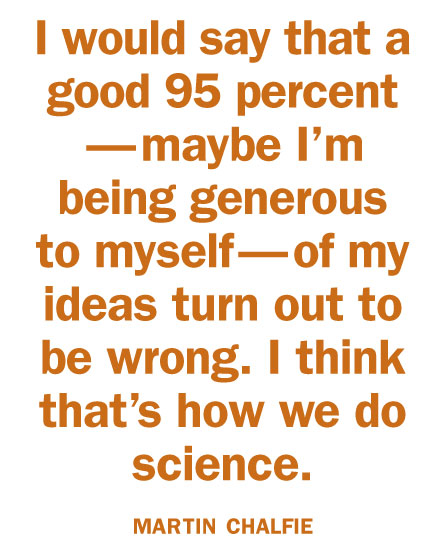Intel ISEF Discussion Panel
Nobelists to students: Being wrong may be just right
By Science News
- More than 2 years ago
Michael Kaplan, The Bronx High School of Science, Bronx, N.Y.
Thomas Huxley said “The great tragedy of science is the slaying of a beautiful hypothesis by an ugly fact.” If your theories about the future of your field were proven incorrect tomorrow, would you cling to your belief or abandon it in favor of a new idea? Would this frustrate you or [would you] be content with knowing how everything really works?

Leon M. Lederman
It’s a curious question because if something that you expected to be right turns out not to be right, what you do is roll up your sleeves and fix it. Whenever there is something that goes wrong in science — and it goes wrong: There’s lessons like cold fusion and so on where scientists went completely wrong, and it was too bad because we were faced with the possibilities of limitless cheap power and it was all wrong and the scientists found out that it was wrong. So I think an essential ingredient in understanding why science progresses the way it does is that we know how to fix things when they are wrong. There may be individuals who are reluctant to change their own theories for personal reasons, but there is a community. And the community will insist that the science be correct. So I don’t think there’s any dilemma in addressing issues where science is wrong. The big collider that we’re all waiting to have operate in Geneva may produce something called the Higgs boson. On the other hand, it may not. If it doesn’t produce it then lots and lots of theoretical physicists will be embarrassed, but who cares about that? … The important thing is we’ve learned something very important about the way nature works and we will immediately go to try and improve that — that’s the way science progresses.
Martin Chalfie
I would say that a good 95 percent — maybe I’m being generous to myself — of my ideas turn out to be wrong. I think that’s how we do science. We make mistakes all the time. We make hypotheses and we design experiments with some idea in mind and we get something unusual and it’s in fact invigorating to have to go off in another direction and find out why we were so mistaken in what we did. So I think this is how we work normally, this is not something unusual.
Dudley Herschbach
Our academic business inculcates in people a fear of being wrong, with exams and all that. But it’s not that way in science because we know that what we are after — understanding —waits patiently for us. In fact, all of science is wrong in the sense that it’s not complete. We don’t expect it to be complete. We expect that discoveries, new tools, methods will open our eyes to a larger perspective and some of our old ideas will be recognized as wrong…. It’s part of science, so you don’t fear being wrong.
Douglas Osheroff
I think a lot of science, certainly in my field, can be divided into two parts: one is the theory that allows us to understand the behavior of materials in various regimes, and the other is a body of physical evidence which has been produced by experimentalists who actually look at these materials and probe them very deeply and, hopefully, very accurately. In terms of the theorists, of course they always have to be ahead of the experimentalists. What I always like to say about the theorists is you should listen to theorists because they tend to have a wonderful nose for where interesting physics lies, but don’t expect them to get it all correct, at least not in my field. So I think theorists learn much more when they find that their theory is wrong than when their theory is right. And that is the way science should be and I think we all embrace those events.
Peter Agre
I think scientists could take a little lesson from Groucho Marx. When asked about his principles, he said, “Well, these are my principles; if you don’t like them I have others.” It’s a bad idea to bet your entire reputation on one theory, one idea or one discovery.